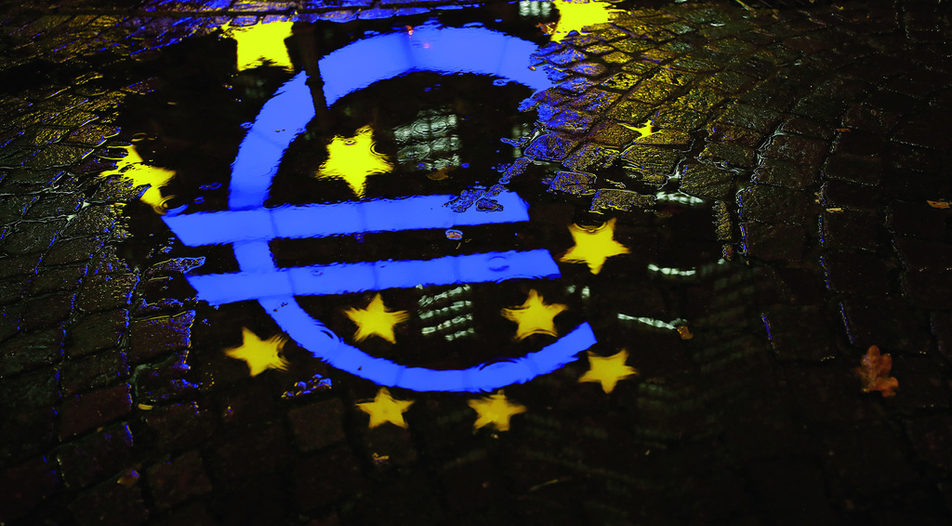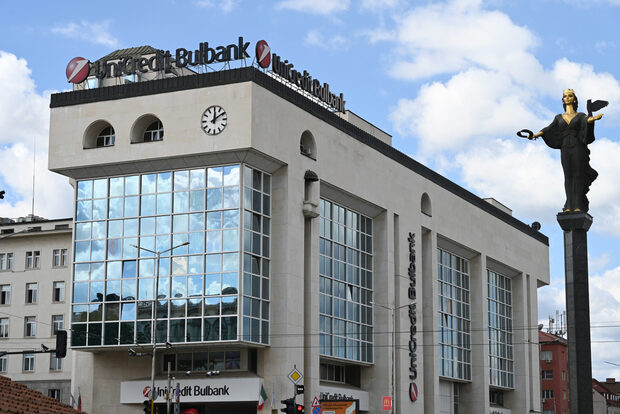After two years of back and forth, on 10 July Bulgaria, along with Croatia, joined the Exchange Rate Mechanism (ERM II) - the training grounds for Eurozone membership and the EU's Banking Union. According to the ECB's press release, Bulgaria will continue implementing extensive reforms in the judiciary and in the fight against corruption and organized crime during the (possibly) lengthy ERM II process.
What now?
According to the procedure, when a currency is included in ERM II a central exchange rate between the euro and the respective currency is agreed. The currency is then allowed to fluctuate by up to 15% above or below this central rate. However, taking into account Bulgaria's long-standing currency board, the country made a unilateral commitment to join EMR II with its existing fixed-rate arrangement, thus placing no additional obligations on the ECB.
Also, starting from 1 October 2020, the European Central Bank will be in charge of the direct supervision of Bulgarian "significant" and "less significant" institutions. The ECB will carry out an assessment to determine which banks fulfil the classification criteria. Certainly, this would include the top three banks in the country in terms of assets - UniCredit Bulbank, part of Italy's UniCredit Group, DSK Bank of Hungary's OTP Group and United Bulgarian Bank owned by Belgium's KBC.
Successful participation in ERM II for at least two years is considered a confirmation of a country's stability. However, it would be optimistic to say that Bulgaria could start using the euro by 2023. For example, Lithuania stayed in ERM II for a little over a decade. Also, in order to move forward, Bulgaria must fulfil the Maastricht criteria - low inflation, budget deficit below 3% of GDP, a debt-to-GDP ratio below 60%, low-interest rates. "The inflation criteria could prove trickier than one might think. We anticipate that the future unit labour costs growth will pose constant upward pressure on inflation for many years to come, in particular in the services area," said ING analysts Valentin Tataru and Trieu Pham in a special report on Bulgaria and Croatia.
The prior commitments taken by Bulgaria and Croatia in recent years spurred important reforms that will mitigate risks under ERM II. However, these reforms will not fix all the imbalances and vulnerabilities that the two countries are facing
The road so far
At the beginning of this year, the outlook on Bulgaria's bid to join the Eurozone didn't seem very promising. The government met the technical requirements for joining the Banking Union and ERM II and was close to clearing the final hurdle - the recapitalization of two banks. First Investment Bank (Fibank) and Investbank were found to have significant capital shortfalls during last year's comprehensive assessment of the country's banking system conducted by the ECB.
However, growing speculation and public anxiety about the stability of Bulgaria's currency board system made Prime Minister Boyko Borissov take a surprising U-turn in February by saying that Bulgaria won't force its entry into ERM II if there is no 'absolute consensus' in society. Several weeks later, the coronavirus outbreak brought Europe to its knees.
By April, it became clear that the European Central Bank plans to help boost the economies of the Eurozone and those in ERM II in need of finance. This brought the Bulgarian government's attention back to the topic. "This crisis has shown us that countries in the euro area and its waiting room will have billions of euro in recovery funds.
Those who are outside the Eurozone will raise debt at huge interest rates," Borissov explained to journalists. He was confident that "not only will we be accepted, but we will be allowed swap lines afterwards" and Bulgaria will hook up to the EU's main money supply line. "We have only one condition to fulfil and we will fulfil it immediately. We are working on it," said Borissov. The last commitment to be met was the recapitalization of Fibank after Investbank covered its capital shortfall of over 50 million euro with a combination of 2019 profit, conversion of subordinated debt into capital and a capital increase.
Timeline of Bulgaria's road to the euro
12 July 2018
- Bulgaria gets the thumbs-up from Europe for a future entry into the euro area, securing a deal for a simultaneous accession to the EU's Banking Union and the Exchange Rate Mechanism (ERM II).
"I believe that the timeframe of one year for joining ERM II and the Banking Union is realistic," says European Commission Vice-President for the Euro and Social Dialogue Valdis Dombrovskis.
22 August 2018
- The Bulgarian government receives a roadmap of reforms it needs to undertake to meet Europe's requirements for entry into ERM II and the Banking Union. Among them is the ECB's comprehensive assessment of the banking sector, the results of which will be published in July 2019.
10 October 2018
- The ECB's comprehensive assessment of Bulgaria's banking system will cover six local banks.
24 January 2019
- "I think there is enough support for Bulgaria to move forward (with the euro - editor). There are reservations about the quality of banking supervision, but it is important that the country has gone relatively smoothly through the crisis of 2008-2009, fiscal policy is responsible," says Daniel Gros, director of Brussels-based Center for European Policy Studies.
29 January 2019
- "As a political party, as a government, we support this path (towards euro adoption - editor). Because it is one of discipline, stability, transparency. And against money laundering and bad credit," says Prime Minister Boyko Borissov.
1 February 2019
- "The European Central Bank has begun reviewing the quality of the assets in the Bulgarian banking system and is expected to present the results by mid-July. I believe that by then Bulgaria will finalize the work on the other commitments, so that then if everything is going according to plan, it will be possible to decide on Bulgaria's entry into ERM II," says Valdis Dombrovskis.
29 May 2019
- Croatia submits a formal request for establishing close cooperation between the ECB and their central bank. The request is part of Zagreb's efforts to join ERM II.
26 June 2019
- "I hope that Bulgaria's entry into ERM II will take place well before the end of the year. I see no obstacle to it happening", says Finance Minister Vladislav Goranov.
9 July 2019
- Bulgaria's bid to join ERM II and the Banking Union is postponed for October. The Croatian government submits a formal application to join ERM II.
26 July 2019
- The ECB's comprehensive assessment of six Bulgarian banks shows that First Investment Bank (Fibank) and Investbank face capital shortfalls of 262.88 million euro and 51 million euro, respectively, in the negative scenario.
11 October 2019
- "We will see at what point Bulgaria fulfils all of the commitments so that the ECB can give a thumbs up for joining the Banking Union. I think the current expectations are set for the first or second quarter of next year. We will see," says Chairman of the Single Resolution Board (SRB) Elke König.
29 October 2019
- The European Insurance and Occupational Pensions Authority (EIOPA) expresses its support for Bulgaria's prospective entry in ERM II.
30 October 2019
- Vladislav Goranov says that Bulgaria can conclude all processes needed for its accession to the Exchange Rate Mechanism II and the Banking Union of the EU by the end of April 2020 if everything goes according to plan.
7 February 2020
- "As long as there is no absolute consensus, confidence in the euro area, we will not force our entry into the [Eurozone's] waiting room," says Prime Minister Boyko Borissov. "We will move forward only when we are ready and people have realized that this is right."
20 February 2020
- "We are following events in Bulgaria. So far, I have not had an opportunity to discuss the issue with Prime Minister Boyko Borissov. Vladislav Goranov assured me that everything is moving forward and the country is preparing to enter ERM II. Perhaps not with the original deadline - the end of April, but a few months later", says Valdis Dombrovskis.
"We have not given up. All I want is a national consensus so that people can be sure that what we are doing is good," says Prime Minister Boyko Borissov.
30 March 2020
- "The deadlines for the implementation of the first step - joining the Banking Union and the currency mechanism, are no longer realistic," says Bulgarian National Bank governor Dimitar Radev. "If we continue to work in the way we have worked so far, if politicians - because it is a political issue -, and the institutions, including the BNB, continue to operate despite the very complex economic environment in which we find ourselves, a postponement for 2021 will not be fatal."
10 April 2020
- Prime Minister Boyko Borissov says that Bulgaria will apply for ERM II entry by the end of April. "I shouldn't have bent regarding [ERM II], you can see how much money they're giving," says Borissov.
16 April 2020
- "The process of joining ERM II and the Banking Union will be fully resumed within April. Following an adjustment to the technical deadlines, a final decision is expected from the ECB within the next three months," says the Bulgarian National Bank.
10 July 2020
- "At the request of the Bulgarian authorities, the finance ministers of the euro area Member States of the European Union, the President of the European Central Bank, and the finance ministers and central bank governors of Denmark and Bulgaria have decided, by mutual agreement, to include the Bulgarian lev in the Exchange Rate Mechanism (ERM II)," announces the European Central Bank. The ECB's Governing Council also adopts a decision to establish close cooperation with the Bulgarian National Bank.
Borisov gives his third briefing of the day, after 2 briefings devoted to street protests against the government. "Many thanks to the President of the European Central Bank (ECB), Christine Lagarde, for what she has done for us. At the same time, it pains me we are not with our president on that date. There are people outside, supporting me and [president] Radev, and instead of counting how many of them there are, they should hug and rejoice, but with masks ".
After two years of back and forth, on 10 July Bulgaria, along with Croatia, joined the Exchange Rate Mechanism (ERM II) - the training grounds for Eurozone membership and the EU's Banking Union. According to the ECB's press release, Bulgaria will continue implementing extensive reforms in the judiciary and in the fight against corruption and organized crime during the (possibly) lengthy ERM II process.










